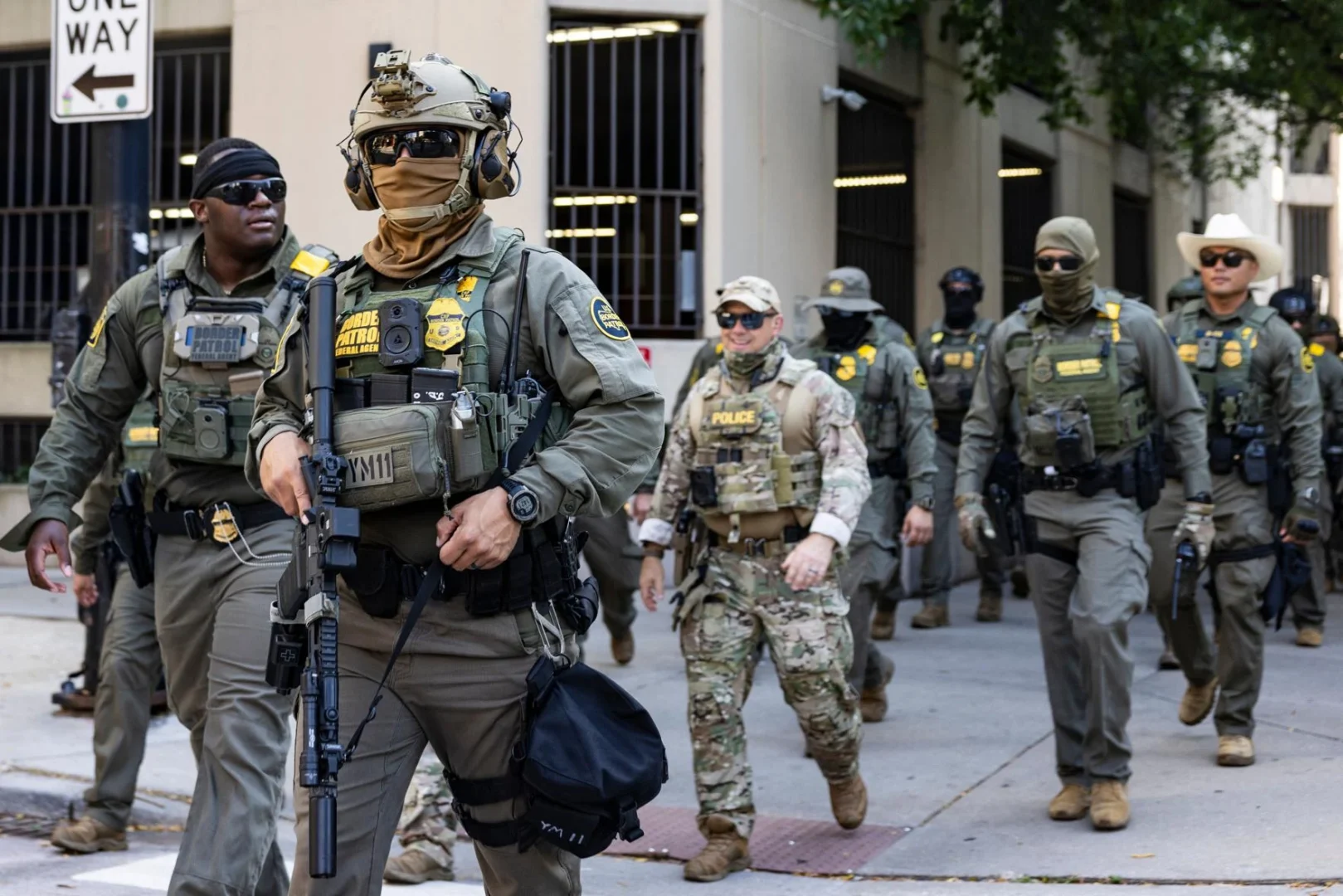CHICAGO, United States — President Donald Trump has authorized the deployment of 300 National Guard troops to Chicago, citing a need to address what he characterized as out-of-control crime and lawlessness in the city.
The controversial move came just hours after federal immigration authorities reported a violent confrontation with protesters in the Democrat-led city.
The Department of Homeland Security (DHS) stated that an “armed woman” was shot after she and others allegedly rammed their vehicles into law enforcement cars.
State opposition and judicial rejection
The President’s deployment plans have faced intense scrutiny and condemnation from state and local leaders for weeks, with critics calling the action an abuse of federal power. Illinois Governor JB Pritzker openly criticized the federal intervention, stating that President Trump was “attempting to manufacture a crisis.”
The announcement coincided with a separate legal defeat for the administration in Portland, Oregon, where a federal judge temporarily blocked the deployment of 200 federal troops.
U.S. District Judge Karin Immergut sharply criticized the administration’s rationale, calling Trump’s statements about conditions in Portland “untethered to the facts,” and ruling that the intended deployment violated the Constitution.
Judge Immergut ruled that using the military to quell civil unrest without the state of Oregon’s consent risked the sovereignty of that state and others, arguing that the move also inflamed tensions and caused increased protests. She concluded that the administration’s arguments for the deployment “risk blurring the line between civil and military federal power – to the detriment of this nation.”
Justification and incident details
White House spokeswoman Abigail Jackson justified the deployment, stating: “Amidst ongoing violent riots and lawlessness, that local leaders like [Gov] Pritzker have refused to step in to quell, President Trump has authorized 300 national guardsmen to protect federal officers and assets.” She added that “President Trump will not turn a blind eye to the lawlessness plaguing American cities.”
The DHS confirmed that the deployment authorization followed an incident on Saturday where U.S. Border Patrol personnel shot a woman in Chicago after a group of people allegedly rammed cars into immigration enforcement vehicles.
DHS assistant secretary Tricia McLaughlin provided details in a statement: “Agents were unable to move their vehicles and exited the car. One of the drivers who rammed the law enforcement vehicle was armed with a semi-automatic weapon.”
McLaughlin added: “Law enforcement was forced to deploy their weapons and fire defensive shots at an armed US citizen.” The woman subsequently drove herself to a local hospital, though the extent of her injuries remains unclear. The protests in Chicago have been largely focused on opposition to U.S. Immigration and Customs Enforcement facilities.
Military as “training grounds”
Earlier this week, the President outlined his strategy regarding these deployments to high-ranking military leaders. He told them he wants American cities to be used as “training grounds” for U.S. troops so they can combat the “enemy from within” and quell unrest.
Also Read: Federal judge blocks Trump’s unilateral National Guard deployment to LA, citing illegality
Referring to Democratic-led cities, including Chicago, he stated: “They’re very unsafe places and we’re going to straighten them out one by one.” He indicated to the military leaders that this would be “a major part for some of the people in this room.”
While violent crime has reportedly fallen significantly in Chicago over the past two years, with the homicide rate down by a third between January and June compared to the previous year, overall crime levels remain substantially higher than the average for many U.S. cities. The city recorded at least 58 shootings, eight of them fatal, over the Labor Day holiday weekend last month.
It remains unclear whether the troops have arrived in Chicago, but the deployment, which joins similar controversial deployments in Washington, Los Angeles, Memphis, and Portland, is widely expected to be met with immediate legal challenges.
Such federal use of military personnel for domestic law enforcement often raises constitutional questions, as National Guard troops are typically deployed only by a state’s governor and under constraints from century-old laws limiting federal use of the military domestically.

